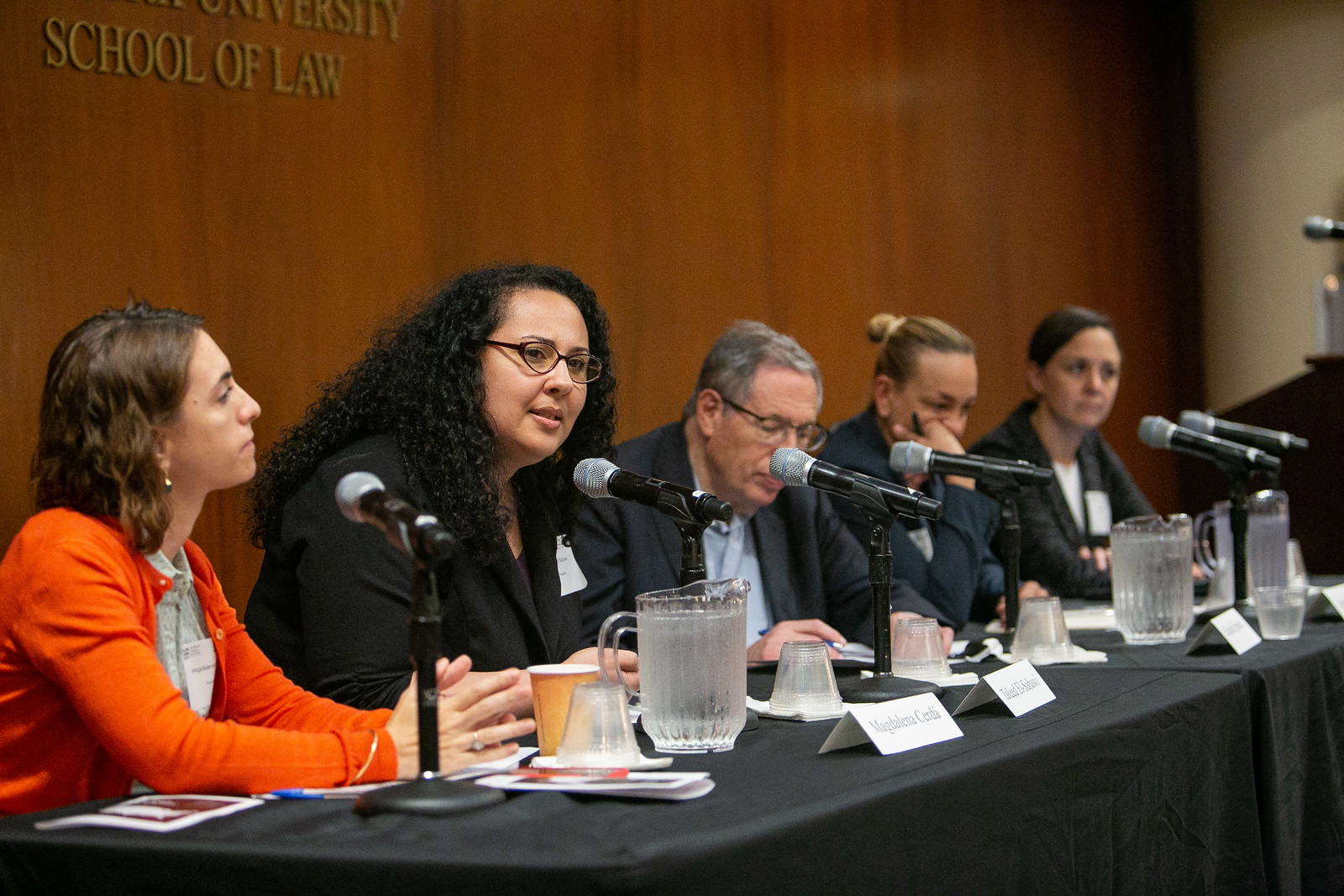Assistant Professor Taleed El-Sabawi took part this fall in a New York University School of Law conference focused on legal and regulatory impacts of the nation’s ongoing opioid health crisis.
An Elon Law scholar with research interests in policy and legislative responses to the opioid crisis was a panelist this autumn at a New York City conference featuring some of the nation’s top legal and health experts related to opioids.
Assistant Professor Taleed El-Sabawi traveled to Manhattan on Sept. 30, 2019, for New York University School of Law’s “The Opioid Conference.”
The program featured two panel discussions and a keynote speech by the Hon. Diane Wood, chief judge of the United States Court of Appeals for the Seventh Circuit. The conference focused on litigation surrounding the opioid epidemic, as well as regulatory issues related to an epidemic that kills hundreds of Americans each week.
Panelists discussed lawsuits against pharmaceutical companies, defense strategies and the most effective way to structure settlement agreements, and reform options to address the health and social crisis.
El-Sabawi joined with scholars from NYU, Seton Hall, and The Ohio State University on an afternoon panel moderated by Richard Epstein, the Laurence A. Tisch Professor of Law at NYU, who led conversations on regulation and reform.
The conference was hosted by NYU’s Classical Liberal Institute, its Center of Civil Justice, and the NYU Journal of Law & Business.
El-Sabawi joined the Elon Law faculty in June after completing her Ph.D. in Public Health, Health Services Management and Policy from The Ohio State University. A graduate of the University of Texas School of Law, where she was articles editor of the Texas Journal on Civil Liberties and Civil Rights, El-Sabawi previously practiced law in California and Nevada. She graduated magna cum laude from the University of Southern California with a Bachelor of Arts in psychology.
El-Sabawi’s research focus is in the areas of mental health and addiction policies, with particular attention to the intersection of drug policy, health law, and legislation, especially legislative responses to the opioid crisis.
About Elon Law:
Elon University School of Law in Greensboro, North Carolina, is the preeminent school for engaged and experiential learning in law. With a focus on learning by doing, it integrates traditional classroom instruction with course-connected, full-time residencies-in-practice in a logically sequenced program of transformational professional preparation. Elon Law’s groundbreaking approach is accomplished in 2.5 years, which provides distinctive value by lowering tuition and permitting graduates early entry into their legal careers.



